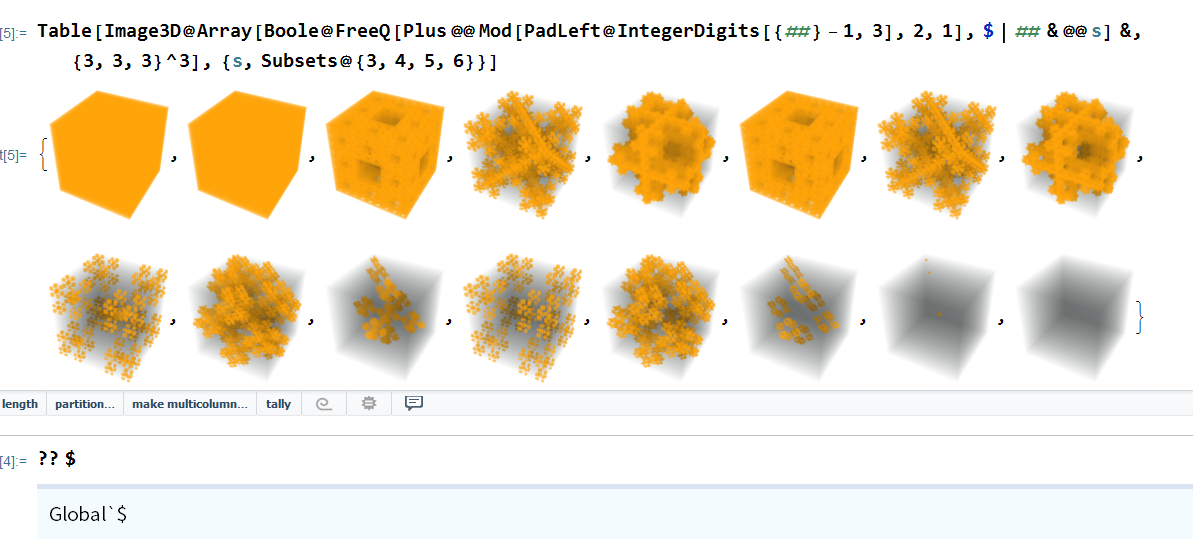Dollars have no built-in meaning. They can be used for variable names. Some global "constants" or settings have a leading $ (e.g. $HomeDirectory or $HistoryLength), somewhat by convention to distinguish them from other symbols. Moreover, Module appends $ and a ever increasing number to its variable names in order to make them unique (see also Unique).
In this particular case $ is just used as something that will certainly not show up. It's a hack. And a bad one because it introduces things in the code that need not be there. I guess it was meant for some kind of code golfing.
The following code would be a bit less obfuscating and does the same:
Table[
Image3D@Array[
Boole@FreeQ[
Total @ Mod[PadLeft@IntegerDigits[{##} - 1, 3], 2, 1],
Alternatives @@ s
] &,
{3, 3, 3}^3
],
{s,Subsets@{3, 4, 5, 6}}
]
Edit
By the way, here is some code that does the same but in a vectorized way, and thus, several hundred times faster:
k = 3;
AbsoluteTiming[
d = Mod[Developer`ToPackedArray[PadLeft[IntegerDigits[Range[0, 3^k - 1], 3]]], 2, 1];
b = Outer[Plus, d, d, d, 1];
img = Table[
Image3D@Threshold[
ArrayReshape[
Normal[SparseArray[Partition[s, 1] -> 0., {9}, 1.]][[Flatten[b]]],
Dimensions[b]
].ConstantArray[1./Dimensions[d][[2]], Dimensions[d][[2]]],
1 - $MachineEpsilon
],
{s, Subsets[{3, 4, 5, 6}]}
];
]
0.010862
The original code takes about 4.34 seconds on my machine.


Alternatives. I like terse code so I appreciate the attempt but it can be done better and safer:# | ##2 & @@ s. Or, if playing "code-golf" save an extra character with#|##&@@sas the duplicated first element has little effect. $\endgroup$